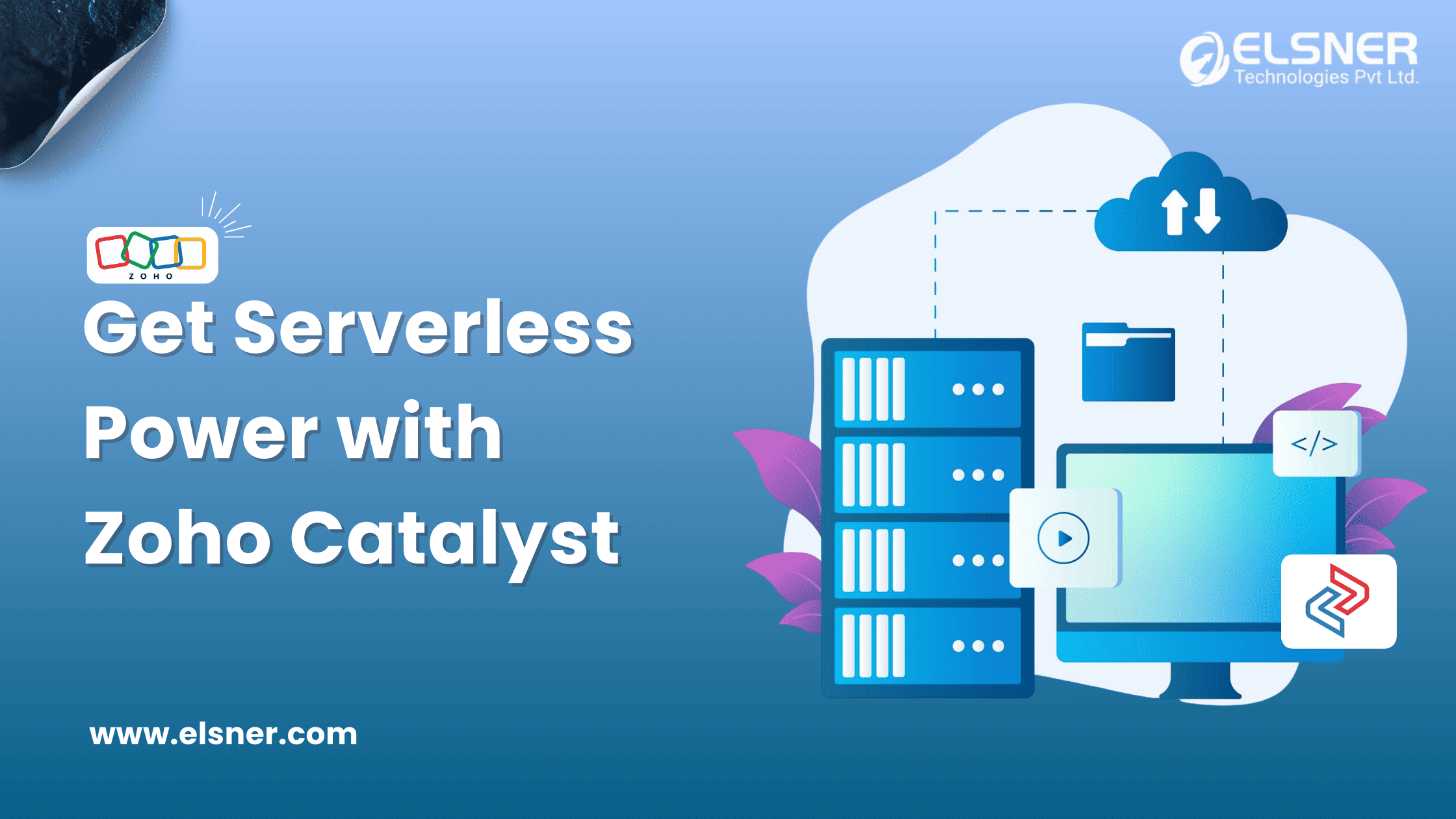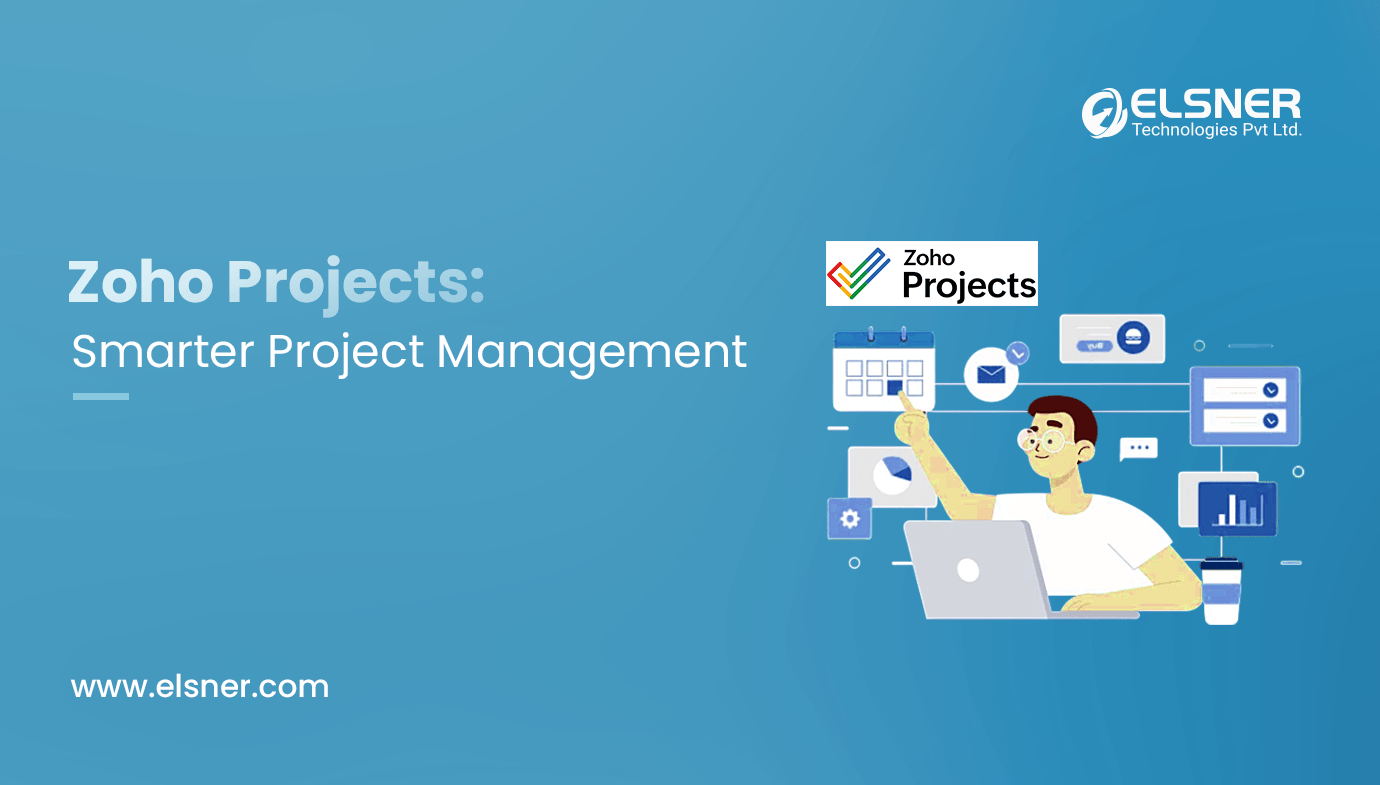- What Is Business Intelligence?
- Why is Business Intelligence Important?
- Artificial Intelligence (AI) Transformative Impact on Business Intelligence
- Some Key Statistics about AI in Business
- Some Potential Challenges After Integrating AI and BI
- 1. Data Privacy and Security
- 2. Bias and Discrimination
- 3. Job Displacement
- 4. Overdependent to AI
- 3 Essential Tips to Set Your Business Intelligence Up for AI
- 1. Migrate Your BI Operations to the cloud
- 2. Align BI Project with AI Goals
- 3. Adopt Modular Approach to Your BI Strategy
- Frequently Asked Question (FAQs)
This is where Artificial Intelligence (AI) steps to business intelligence and becomes an integral part.
Nowadays, businesses are utilizing the power of AI for data analysis and giving more accurate data. Zoho Analytics is the best integration of AI and Business Intelligence. It makes wonder and provides real insightful reports that every business needs to grow exponentially.
Many people are unaware of the potential of AI in data analytics and how it is helpful for business intelligence.
Here we will explore the true potential of AI, its impact on business intelligence and how it plays a crucial role in predictive analytics.
What Is Business Intelligence?
Business Intelligence (BI) is a technological software capability that allows you to collect and analyze business insights. You can use Zoho Analytics to create impactful strategies and make other informed decisions for your business. These BI analytics come up in a user-friendly graphical representation within a dashboard.
This Business Intelligence software directly allows the decision-makers to analyze the technical data and make predictive analytics. Plus they can even create in-depth reports by themselves, considering the essential business insights. You can very well implement this software in multiple areas of your business including finance, sales, marketing, and more.
Why is Business Intelligence Important?
Business intelligence can help you create your overall business strategies based on data-driven insights. Here we’ve mentioned some of the importance of using the Zoho Analytics software in your company.
- Understand Potential Customers: BI (Business Intelligence) can help you analyze your customer’s buying patterns and develop a suitable customer persona. It helps you improve your customer targeting.
- Improve Operations Visibility: You can keep a better watch on your business operations and easily rectify any possible error in your processes. Thus, you can improve your business processes with time.
- Provide Actionable Insights: Business Intelligence can be used to analyze your business data and gather valuable insights. After that, you can make informed decisions for your business.
- Boost Efficiency: This business software can help you boost your company’s overall efficiency and revenue. Simply, when all of your employees have the required insights into the company, they will make much better decisions.
- Enhance Customer Experience: Business Intelligence allows you to figure out the customer’s overall preferences that help you make the required changes to enhance customer experience.
Artificial Intelligence (AI) Transformative Impact on Business Intelligence
AI helps businesses to analyze large databases and find meaningful insights. Many businesses have seen a significant impact on Business Intelligence after using AI.
AI positively impacts businesses by analyzing data and finding valuable insights. It allows BI to make informed decisions in your business for growth.
43% of businesses are now planning to increase their investments in Artificial Intelligence for business growth.
AI-powered Zoho Analytics is the most ideal solution for businesses to give accurate data, informed decisions, trends, predictions, and more.
Business Intelligence is mainly used to make informed decisions for business growth. However, it’s not capable of finding accurate data to make informed decisions.
Here, AI comes into play that help you analyze your business insights and BI makes the right decisions based on this data.
Some Key Statistics about AI in Business
Here are some key statistics to understand the role of AI in Business:
- 84% of C-level executives believe that leveraging AI can grow their business.
- The global AI market will reach $190.61 billion by 2025.
- 91.5% of businesses are investing in AI.
- Customer satisfaction is expected to grow up to 25% after using AI.
- More than 4 billion devices working on AI-based voice assistants.
- 80% of retail executives expected their companies to adopt AI-based automation by 2027.
- Netflix is making $1 billion yearly by using AI in personalized recommendations.
- The AI market is growing with 38.1% CAGR between 2022-2030.
- The total contribution of AI in the global economy will be $15.7 trillion by 2030.
Predictive Analytics with Artificial Intelligence (AI)
Artificial Intelligence plays an important role in predictive analytics. There were so many tasks that were done traditionally such as collecting, sorting, and organizing data. AI-based Zoho Analytics replaces these manual operations with automation and lets predictive analytics focus more on analyzing data and making predictions.
AI allows businesses to do in-depth data analysis and make predictions about future events, trends and customer behavior.
Many businesses found AI in Zoho development useful to grow their business and achieve goals faster.
One of the best examples of using AI-based Zoho Analytics is delivery operations. AI takes the data and does in-depth analysis to find the best possible route for delivery, reduce transportation costs, and improve delivery efficiency.
AI-based predictive analytics can improve delivery operations. It analyzes the data and finds the best possible route for delivery, reduces transportation costs, and improves delivery efficiency.
Some Potential Challenges After Integrating AI and BI
Here are some challenges of integrating AI in Business Intelligence:
1. Data Privacy and Security
Zoho Analytics analyzes large amounts of data to get valuable insights. But, it increases the risk of data privacy and security. Whenever you are using AI in Business Intelligence then you need to provide the entire database. So make sure the data is secured and provided in the right hand before getting analyzed. You should add a protection layer to prevent unauthorized access and protect data.
2. Bias and Discrimination
AI algorithms produce results based upon the feeded data for the training. If your training data has any biases or discrimination, it will directly lead your BI tool’s decision to make mistakes. At this point, you have to analyze your training data to maintain the precision and accuracy of decisive results. You can also hire a technical expert to check the algorithmic calculations and actions of the artificial intelligence used in your processes. It will help you understand the quality and accuracy of the results and ensure that there are no biases.
3. Job Displacement
Nowadays, most businesses are using AI in their day-to-day operations including Business Intelligence. So it increases the risk of various job displacements such as data analysts and decision makers. Machines are becoming better and capable of doing various tasks that were previously done by humans. Also there are numerous new jobs created by AI that people should consider. It’s a rapidly changing market where you should keep skills updated to become a valuable asset.
4. Overdependent to AI
By seeing such fast adaptability of AI In businesses, there’s a high risk of strong dependency. It reduces the role of humans and lets machines decide overall business operations. So it is important to understand that leveraging AI is good for digital product development. But considering it as a great replacement for humans can increase risks.
3 Essential Tips to Set Your Business Intelligence Up for AI
1. Migrate Your BI Operations to the cloud
First, you should migrate your BI operations on a cloud platform. It allows you to access the data anytime, anywhere in one click. The reason behind sending data to the cloud is to make it accessible for AI is to use data, analyze it, and find valuable insights.
2. Align BI Project with AI Goals
You need to align Business Intelligence projects with AI Goals. So that you can provide an AI-required database for in-depth analysis and find insights to achieve goals much faster.
3. Adopt Modular Approach to Your BI Strategy
Adopting a modular approach can help your business to build data pipelines, prioritize data and solve immediate problems in data. So that AI can work efficiently and accurately analyze data to find meaningful insights for overall business growth.
Frequently Asked Question (FAQs)
Q.1 What is the impact of AI over BI?
AI can help the BI software to make more accurate, better, and timely decisions for a business. Though, BI softwares can easily analyze and evaluate the data, but AI helps them to better understand the data so that it can provide better outputs.
Q.2 How has AI changed the analytics?
This is a generative AI that has the capability to learn from the data and make far better predictions. Furthermore, if you mix the ML here, it can also predict based on the previous patterns. Therefore, you can trust these analytical data for your business.
Q3. What is the main role of AI in BI?
AI works as a main tool that reads the company’s data and provides the BI software with useful insights. In simple words, artificial intelligence simplifies the meaning and importance of providing data to business intelligence software so that it can make accurate business decisions.
Wrapping Up!
Business Intelligence has seen a major transformation after AI. It allows you to use AI-powered Business Intelligence in your business to make informed decisions and driving growth. Now we hope you have a clear idea of Zoho Analytics, AI in Business Intelligence and its future scope.




